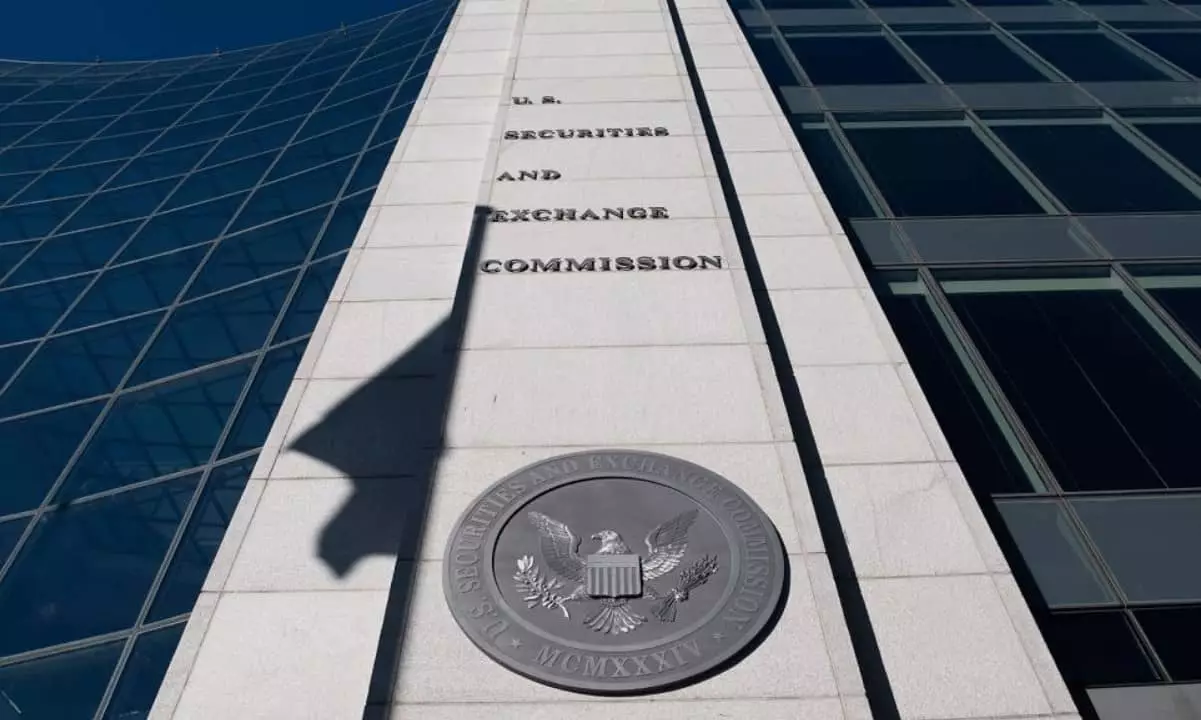The rapid evolution of the cryptocurrency industry has placed significant pressure on regulatory bodies across the globe. In the United States, the Securities and Exchange Commission (SEC) has been at the forefront of monitoring this digital finance revolution. However, recent developments have raised serious concerns among a faction of lawmakers who argue that the SEC’s regulatory framework, particularly concerning crypto custody, is fraught with inconsistencies and lacks transparent processes. House Rep. Patrick McHenry and Senator Cynthia Lummis are leading the charge, demanding substantial changes to how the SEC governs the custody of digital assets.
The crux of the controversy revolves around the SEC’s Staff Accounting Bulletin No. 121 (SAB 121), which mandates that custodians of digital assets recognize certain liabilities on their balance sheets. According to proponents of this regulation, this approach aims to ensure that the value of digital assets held is adequately reported by financial institutions. However, critics—including prominent Republican lawmakers—contend that this directive was issued without the necessary consultations with pertinent regulators and without adhering to established rulemaking processes. This has created a murky landscape where both custodians and their consumers are left vulnerable to confusion and increased risks.
The complication lies in SAB 121’s requirement for custodians to report digital asset liabilities at their fair market value. Such guidelines, critics argue, diverge significantly from conventional accounting practices, giving a distorted view of custodians’ legal obligations. This misalignment could mislead consumers, who may lack the expertise to interpret complex financial disclosures adequately.
In their letter to SEC Chair Gary Gensler, McHenry and Lummis assert that the SEC’s actions surrounding SAB 121 bypassed rigorous legal protocols. They reference a ruling by the Government Accountability Office (GAO), which categorized SAB 121 as a “rule” under the Congressional Review Act. Such designation implies that the SEC should have formally notified and solicited public commentary prior to its implementation, a step that was evidently overlooked. The decision to frame this accounting guidance as mere staff advice has sparked allegations of regulatory overreach and negligence towards stakeholder engagement.
Furthermore, there are serious implications regarding exemptions the SEC has reportedly granted to select institutions, particularly as it relates to BNY Mellon, a significant player in the banking sector. During a public testimony in Wyoming, the general counsel for Senator Lummis revealed that BNY Mellon benefitted from exemptions that allowed it to navigate around rigorous compliance mandates posed by SAB 121. This preferential treatment raises crucial questions about fairness and uniformity in the regulatory approach toward different financial entities.
The differentiation in how SAB 121 is enforced has brought about accusations of favoritism within the SEC. The lack of a consistent application across various institutions has been characterized as detrimental to investor protections. This selective enforcement could further erode trust in the regulatory framework as stakeholders are left to ponder whether some companies are being granted unfair competitive advantages due to their pre-existing relationships with the SEC.
Moreover, any inconsistencies in the application of rules across the board may dilute the intended “enhanced” disclosures meant to protect investors. In contrast, standardization is crucial; without it, market participants cannot assess risk equitably or make well-informed decisions regarding their investments. By allowing interpretation and leniency toward certain entities, the regulatory environment becomes unpredictable, potentially dissuading new entrants into the space who may feel that they are operating at a disadvantage.
The ongoing discourse surrounding the SEC’s regulation of crypto custody must evolve to ensure that clarity and fairness are prioritized. Lawmakers like McHenry and Lummis are rightly advocating for a reassessment of Staff Accounting Bulletin No. 121 to align it with conventional regulatory frameworks while avoiding arbitrary discretion in application. As the cryptocurrency sector continues to navigate uncharted waters, it is imperative that regulatory bodies like the SEC embrace transparency and rigor in their processes. Ensuring equitable treatment among all market participants is essential to maintaining investor confidence as the crypto landscape develops. The path forward requires a harmonious balance between innovation and the need for robust regulatory oversight, a challenge that the SEC must rise to effectively.
















Leave a Reply